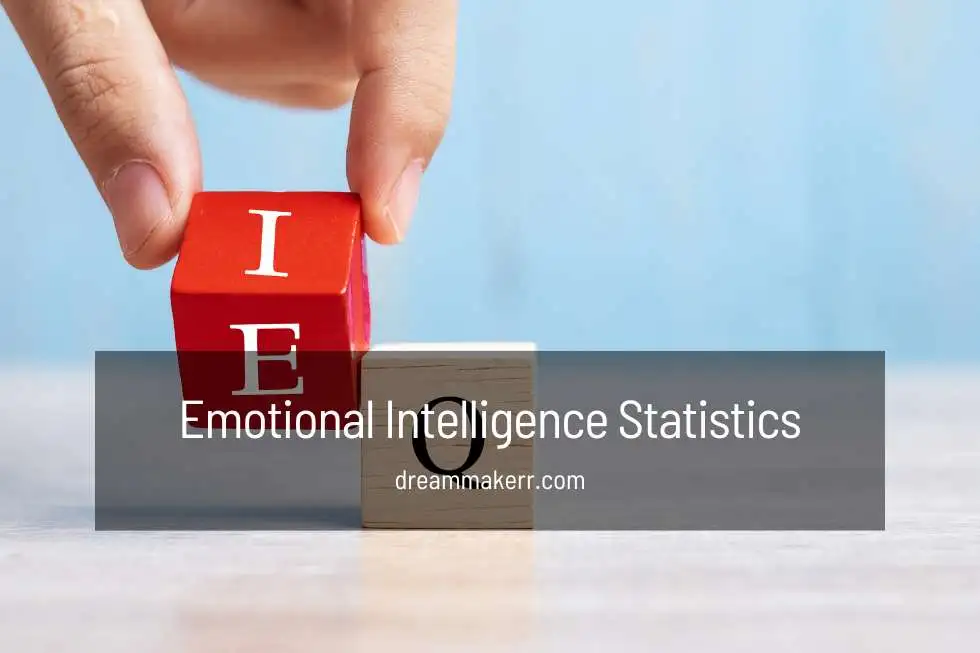On this page

When You Stop Reading, What Happens to Your Brain?
When you stop reading, what happens to your brain, you ask?
- Your mind begins to wander, and your attention span decreases.
- Because it takes more effort for your brain to process information, you become restless or nervous.
- If you can’t fall asleep, it’s likely because your mind has been racing with thoughts all day long.
- Once you finally drift off to sleep, you’ll probably wake up after only a couple of hours due to the residual anxiousness from earlier in the day.
Before you read this post, look at the most recent reading statistics.
According to a new MIT study, the brain has a region dedicated to reading, the ability to read, even before children learn to read.
The brain is a very advanced organ. Getting caught up in the whirlwind of daily life can be easy.
We’ve all heard that reading can be a great way to escape your current reality, but what happens in your brain when you stop the habit of reading?
This article will teach you how reading stimulates cognitive activity in the brain, sharpens the brain, and how a lack of reading often leads to a dull and less focused brain.
In a nutshell, this is what happens when we read.
The Technical Aspect Of Being A Reader
Reading is a sophisticated process of decoding symbols to derive meaning and comprehension.
Reading is a great way to learn a new language and can also help improve your communication and presentation skills.
The text and the reader interact in a complex way formed by the reader’s background knowledge, personal experiences, attitude, and the cultural and social context in which he is situated.
Continuous practice is required for the reading process:
- Imagination and creative thinking
- Retrospection and analysis
When we read, what happens to our brains?
In a world where information is power:
- Reading is the best source of ongoing learning, knowledge, and acquiring more currency.
- Being on the cutting edge often entails reading a book or two now and then.
- This practice can propel you into the top 3% of earners.
The first and most obvious advantage is that reading improves brain connectivity.
As Dr. Seuss once said,
“The more you read, the more you learn, the further you will go.”
How far do you want to go in life?
What Effect Does Reading Have On The Brain?
This blog post is here to emphasize the importance of reading. And how this simple act can drastically improve your life.
Anyone who knows a thing or two about reading will tell you that it is an entirely immersive experience.
It allows you to learn new things.
That isn’t all.
Reading brings imagery to your mind while eliciting an emotional response.
Why is reading important?
Reading has numerous advantages.
And it makes no difference what you read, whether it’s a blog, a book, or a newspaper.
So, what are some main reasons why you should read more?
Here are a few examples:
- Reading is an excellent way to increase your knowledge base and gain new perspectives.
- It can also help improve your writing skills because it exposes you to different styles of expression.
- Enhances communication skills by improving vocabulary, grammar, and spelling.
- Improves comprehension skills by allowing you to practice understanding complex ideas.
- Reading also increases your ability to focus and concentrate and build memory and recall abilities.
- It can provide entertainment and an escape from reality when needed while eliciting an emotional response.
- Reading regularly has been shown to decrease stress levels and improve overall mental health.
Reading is an essential part of life and has many benefits that can help you live a more prosperous and fulfilled life. Whether you’re reading for pleasure, education, or personal development, making time for reading in your daily routine is essential.
Reading regularly improves:
- Communication and writing skills
- Critical thinking and problem-solving abilities
- Cultural awareness and understanding
- Concentration, focus, and memory recall
- Stress levels and mental wellbeing overall
- Imagination, creativity, and empathy
- Vocabulary and language skills
Reading is a simple and effective cognitive activity, and it’s no surprise that people who read a lot are more shapely and smarter.
Increase your focus and concentration.
Reading can also help you improve your focus and concentration.
After all, reading a book from beginning to end is a difficult task. It takes a lot of focus and concentration to get through to the end.
Reading regularly will train your brain to focus and concentrate better, which you can apply in everyday life.
Reading is a great way to unwind.
Reading is also an excellent way to unwind and relieve stress after a long day at work.
Reading reduced stress levels by up to 68%, according to a study published in 2009 by the University of Sussex. (March 2009, The Telegraph)
This is a significant figure, and the good news is that no matter what you read, it will reduce your stress levels.
Reading increases your intelligence.
What occurs when we read…
Is it true that reading books makes you smarter?
Reading provides you with the opportunity to learn something new.
Because there is no end to knowledge, it is often advised to devote your life to learning as much as possible. According to Examined existence, reading makes you smarter.
Reading keeps you up to date on a wide range of issues. You will become more innovative and exposed due to this knowledge.
When You Stop Reading, What Happens to Your Brain?
There is no going back for people already accustomed to reading books.
Getting into the habit of reading is difficult enough.
Stopping abruptly could cause a slew of problems.
Some of the things that could happen if you stop reading are as follows:
You are no longer as knowledgeable as you used to be
When you stop reading, you lose the informative edge you once possessed.
Most people who are well-informed obtain their information through reading.
Reading is the best way to stay current and aware of what is happening around you.
Stopping to read will reduce the flow of information that you had previously.
In this information age, you will quickly lose your competitive advantage.
Your memory begins to deteriorate.
Reading is an essential part of stimulating cognitive activity. This frequently results in a sharper and more focused mind.
Suppose you are already a voracious reader. Your brain is already extremely sharp, and your cognitive ability is far superior.
If you stop reading, you may lose these gains.
You have the impression that something is missing.
People who have made reading a habit may find it challenging to live without it.
It’s challenging to let go of a significant part of your life.
It will take time to adjust, and when you do decide to return to reading, it may not feel as good or exciting as it once did.
However, you will always feel like something is missing from your life.
Reading is essential.
Consider the advantages you receive.
Everyone should make it a habit to read something at least once or twice a week.
The internet has unquestionably altered the way we read.
It is now easier to obtain books and publications.
Some people prefer hard-copy books, but the most important thing is that the information is available.
Conclusion
Reading is an essential part of life. It can be a source of knowledge, entertainment, and even relaxation. Whether you read novels, non-fiction books, magazines, newspapers, or online articles is up to you. Reading regularly will pay off in the long run with more knowledge and expanded skills. So take some time, pick up a book and get reading!
Reading doesn’t have to feel like an obligation. Try to find something you enjoy reading about and commit to reading it at least once or twice a week. This way, you can ensure that you are always learning something new and expanding your knowledge base. With vast access to digital and physical books, you can easily find something that interests you.
You don’t have to limit yourself to reading just books either. Reading articles online or in newspapers can help you stay informed about current events, politics, and other topics of interest. Try subscribing to a magazine or even listening to an audiobook. Regardless of your choice, remember that reading is an essential part of being successful. It not only enables you to become more knowledgeable, but it also helps improve your critical thinking and problem-solving skills.
Like any other skill or habit, consistency is the key to becoming an avid reader. Try setting aside some time for reading.

Petri Maatta is a mindset coach and neuroscience-focused author with 15 years of experience in personal transformation and success psychology. After seven years of business failures, he discovered the power of manifestation through a Fortune 500 mentor. Now, he shares neuroscience-backed strategies through DreamMaker membership, helping others transform their businesses and lives on their own terms.
Read My Story here.
Share This Story, Choose Your Platform!
You want to manifest a new car, but you’re wondering: Does this really work? Here’s
Many smart individuals are often linked with having a high IQ. However, according to emotional
According to online dating statistics over 90% of people believe in love at first sight,




